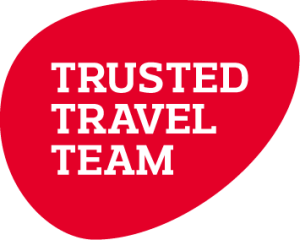Autonomy and empowerment among Maasai women
As the DER Touristik Foundation reaches the remarkable milestone of a decade of impactful collaborations, we are thrilled to shine a spotlight on our valued partners. Today, we would like to introduce you to the Maasai Women’s Education Centre in Tanzania, which supports the education of women and girls.
Traditionally, women have few rights among the Maasai in Tanzania. They are usually married off during adolescence and then must care for themselves and their children – often alone, since men are usually married to several women. It is common for women to have to support up to ten children, yet tradition dictates that they are not allowed to possess money. What’s more, the women are socially isolated and have little contact with one another. The women’s groups are addressing all these issues.
Since its opening in October 2017, Maasai women from the surrounding villages have met to exchange experiences. Philomena Kiroya, founder of the centre, has already achieved great success due to her tenacity and patience. This way, women share ideas on economic activity and on dealing with micro credits, with which they can use to build up a small trade.
The groups meet regularly in the seminar centre, where they hold discussions together with two female teachers. Secondary effect: the women see how important education is, recognise its value for their children as well, and send them to school.
Of the 75 women’s groups that established themselves under the direction of ECLAT, to date 58 have received financial aid as micro credits in the form of seed capital. This means the groups can generate revenue and the women can gain freedom and independence while also enabling their children to get a school education.
Insights from Mamaai Letoo
We talked to Mamaai Letoo, who regularly participates in these meetings. How has her life changed since being part of the Women’s Education Centre? She explained: “Since I have been regularly meeting with other women, my life has experienced a lot of positive change. Previously, we Maasai women all lived quite isolated lives. Now we mutually support one another. The training in the Women’s Education Centre and being part of the women’s group are a real highlight for me. They bring light to my life!”
She added: “I always really look forward to the meetings, which is already clear from the hours I spend getting my clothes ready beforehand … I learn so many useful things! It is very important for me since I never went to school. Now, for example, I know how important hygiene is. Keeping my house clean, eating from clean dishes, and wearing clean clothes, none of this was the case for me in the past. Nobody had taught me.”
Mamaai Letoo revealed that being independent from her husband is good for her self-confidence. “I go shopping by myself and now know how to feed my family in a healthy way,” she explained. “I even look better and younger because I dress more cleanly and, above all, I eat healthier.”
However, for her, one of the most important takeaways is that she learned how to produce soap and corn flour, and therefore earn her own money. “I invest everything in my children and their school education, because education is the most important factor for a good and secure future. I am very proud of my independence.”
“The women’s group has fundamentally changed my life,” she concluded. “If anyone asks what I still lack, I would say: in the future, we need electricity for the cornflour mill in order to operate the machine ourselves and more easily – without depending on men.”

